- Home
- Military & Defense
- The story of Waterloo, one of the most epic battles in history
The story of Waterloo, one of the most epic battles in history
Napoleon abdicated as emperor of France on April 6, 1814, after troops from the Sixth Coalition entered Paris. The French monarchy was restored to power a quarter-century after the French Revolution began — and Napoleon, who had once conquered much of Europe, was exiled to Elba, an island off the west coast of Italy.

He didn't stay there for long. On February 26, 1815, Napoleon left the island. His goal: to depose the French monarchy and regain his position as emperor.
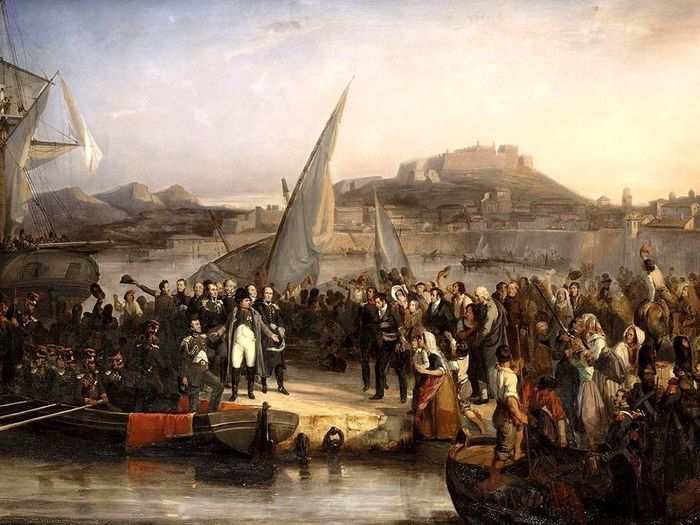
Napoleon landed on the European mainland on March 1st, 1815, with 1,000 men at his command. By the time he reached Paris on March 19th, the king had fled. By June, Napoleon had nearly 250,000 troops at his command.
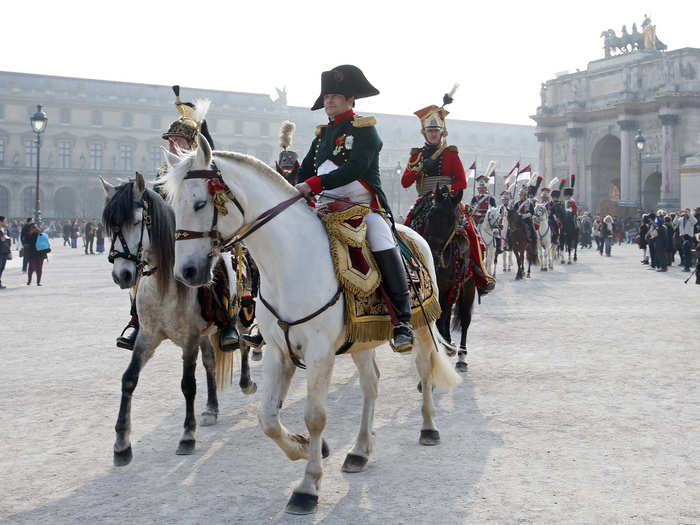
War was inevitable when Napoleon reclaimed power in Paris. The winners of the last war were already planning what Europe would look like without him: at the Congress of Vienna, which began in November of 1814, diplomats from European monarchies were busy redrawing the continent's borders after Napoleon's 1814 defeat. Napoleon was a dangerously charismatic figure capable of raising enormous armies and dead-set on overturning Europe's anti-republican order. He had to be stopped.
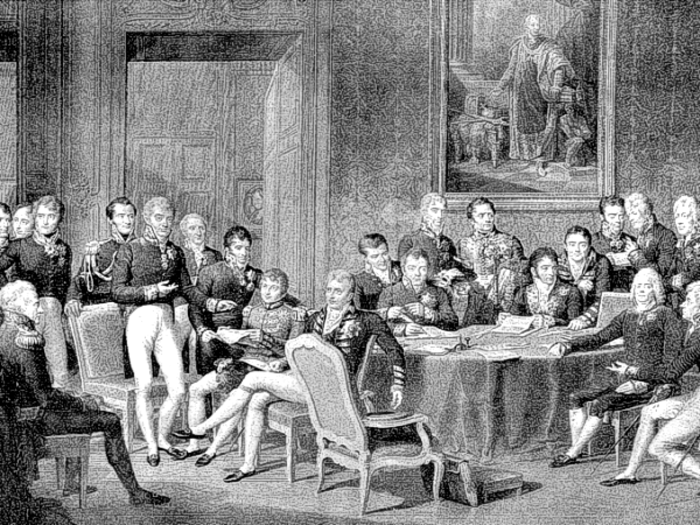
By early June, the "Seventh Coalition," consisting of Prussia, Austria, the United Kingdom, Spain, and others had 850,000 soldiers at its command. In a March 25th, 1815 treaty, the major European powers agreed to dedicate 150,000 troops each to Napoleon's defeat. The march to Waterloo — to a final confrontation, all-out between Napoleon and his enemies — had begun. In this map, the Coalition countries and their overseas holdings are shaded in blue. Napoleon and his lone major ally, the Kingdom of Naples, are shaded green.
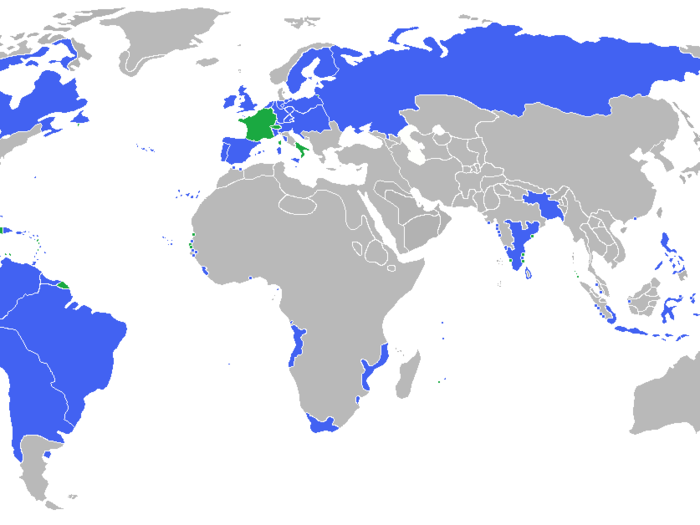
Outnumbered by the Seventh Coalition and realizing it was only a matter of months until the allies would march into France, Napoleon decided on an offensive strategy. He calculated that quick victories against a nascent and disorganized coalition would force them to sign a peace agreement that left him as ruler of France. He sent his armies into Belgium, parts of which had a sympathetic French-speaking population, in early June.
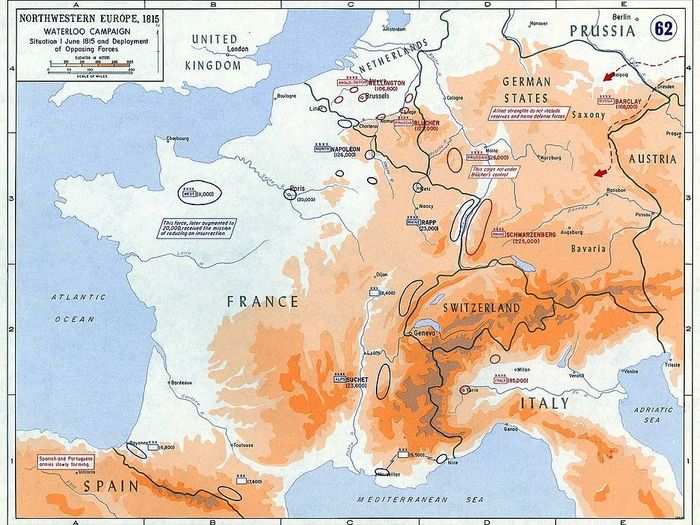
The Seventh Coalition mobilized in response. Their leaders included Arthur Wellesley, the 1st Duke of Wellington, who at 46 was the same age as Napoleon and had led troops into battle in India and throughout Europe. Waterloo turned him into one of Britain's greatest military heroes, and he later served as Prime Minister. He was voted the 15th-greatest Brit of all time in a 2009 BBC poll.
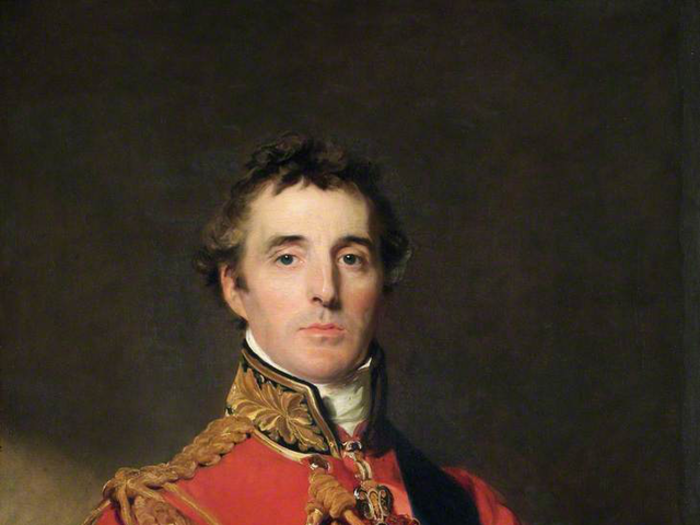
Gebhard von Blucher, who had defeated Napoleon at the Battle of Lepzig two years earlier, commanded the Prussian army.
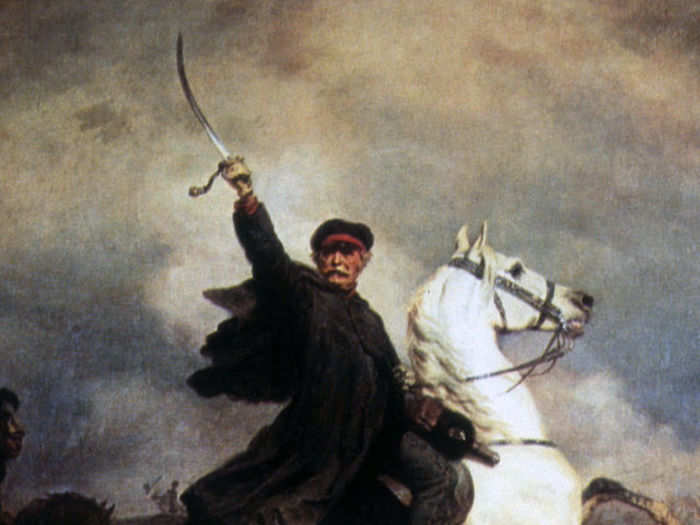
Prince William II of the Netherlands commanded the 1st allied corps.
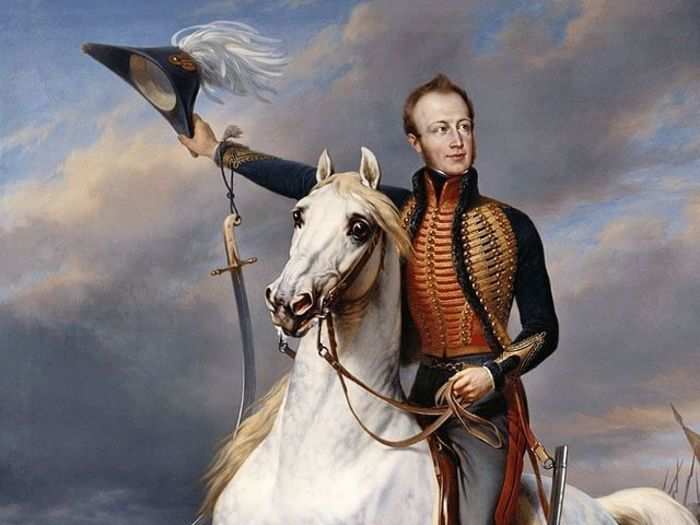
It rained the evening before the battle. Napoleon had a slight numerical advantage. He commanded 72,000 troops. The allies had 68,000. And Wellington once said that Napoleon's "presence on the field made the difference of 40,000 men."

Wellington chose to meet Napoleon behind a ridge in a valley, which offered his troops protection from direct artillery fire. It also gave him a defensible position where he could hold out until Prussian reinforcements arrived.
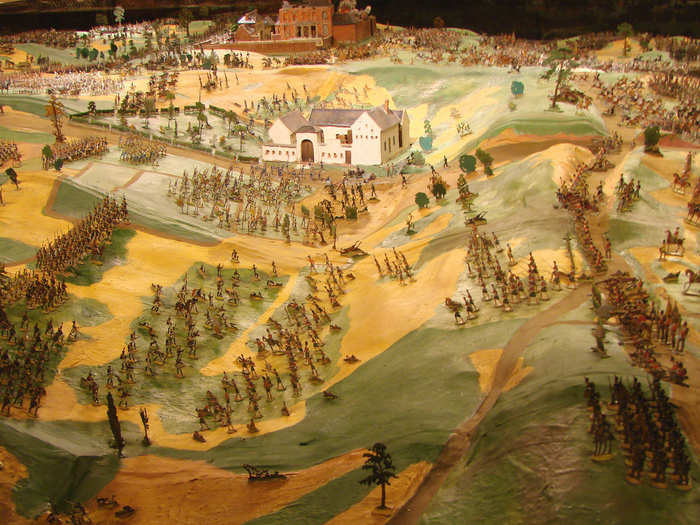
Wellington was in a defensive crouch and the Prussians were still far from the battlefield. But Napoleon delayed the start of the battle for 2 hours. He thought the ground was too muddy from rain to effectively deploy cavalry and artillery. This pause benefited the allied troops by allowing the Prussian reinforcements to draw nearer.
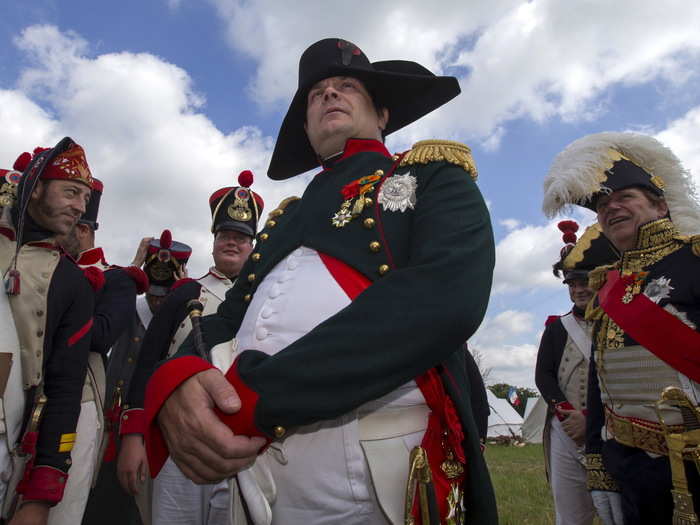
A day earlier, Prussian general Blucher's army had been forced into retreat at Ligny, south of Brussels, in a battle that would prove to be Napoleon's final victory. But rather than retreat into Prussia, as Napoleon had anticipated, Blucher was determined to reinforce Wellington's position. His troops' presence was decisive to the Seventh Coalition's success.
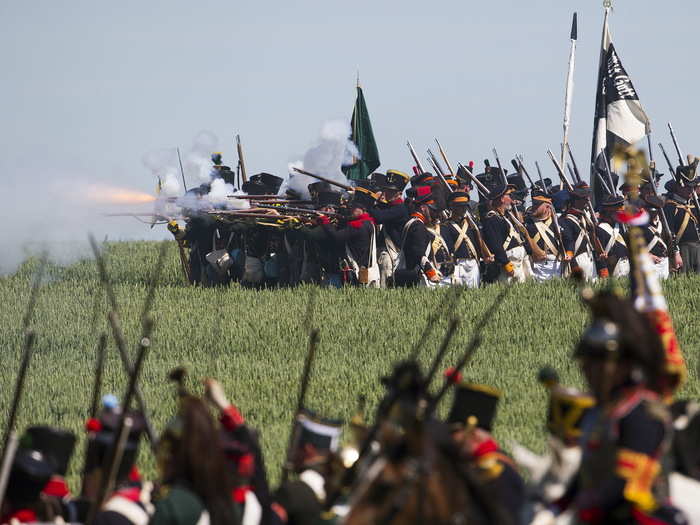
Napoleon opened with a wave of attacks on Hougoumont farm, one of the most heavily-defended British positions. Napoleon thought that he could overwhelm Wellington's army, spread its defenses for attacks on other fronts, and knock out one of Wellington's strongholds. The British held the position throughout the day in the face of a French onslaught that nearly succeeded.
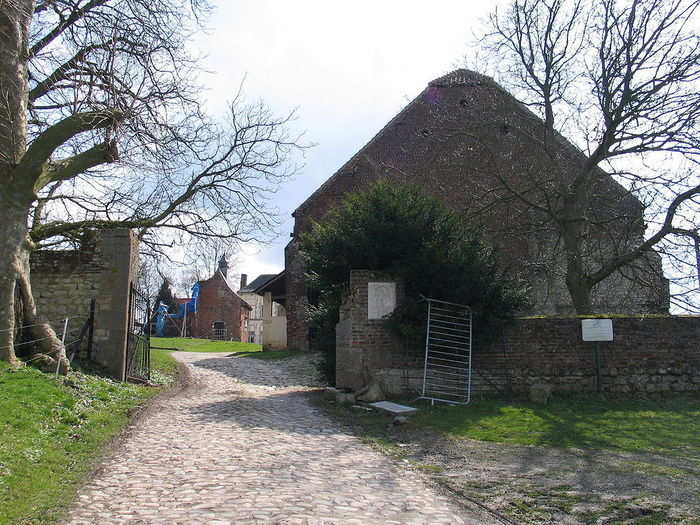
Napoleon sent wave after wave of troops at the center of Wellington's line, hoping to break it before the Prussians arrived. He nearly succeeded around midday of the battle — but the Prussians finally arrived. They had gained crucial high ground as the French closed in on the British positions.
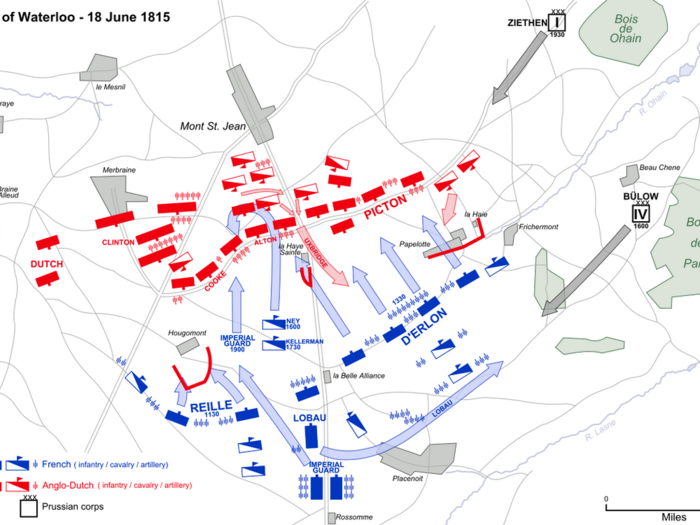
When Napoleon's feared cavalry finally charged, the British let loose with musket fire and grapeshot.
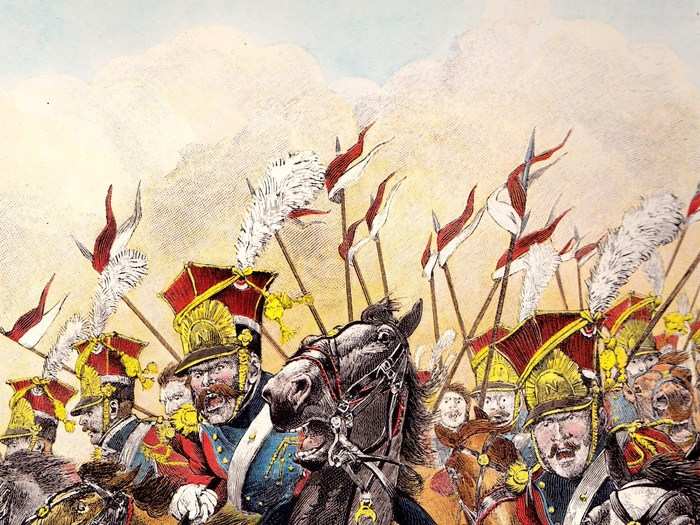
The muskets of the day were extremely inaccurate and slow to reload. To ensure an effective volley of fire, the troops stood in a line and fired all at once.
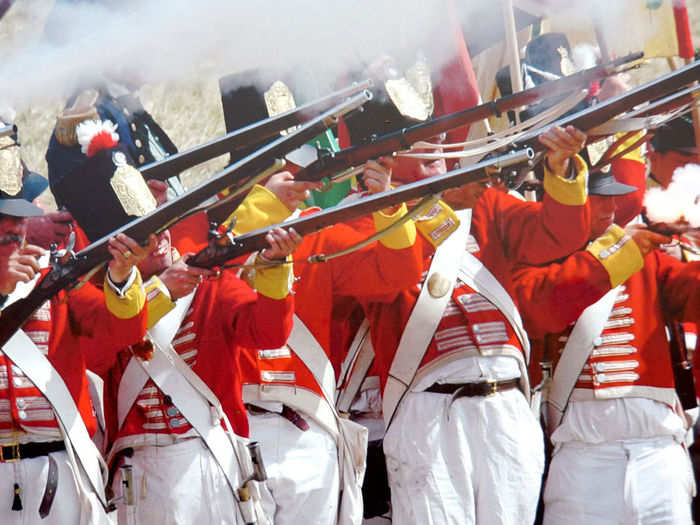
A single cannonball would routinely rip through an entire file of troops. At close range, cannons fired grapeshot, or a bag of hundreds of musket balls which would spray like a shotgun blast.
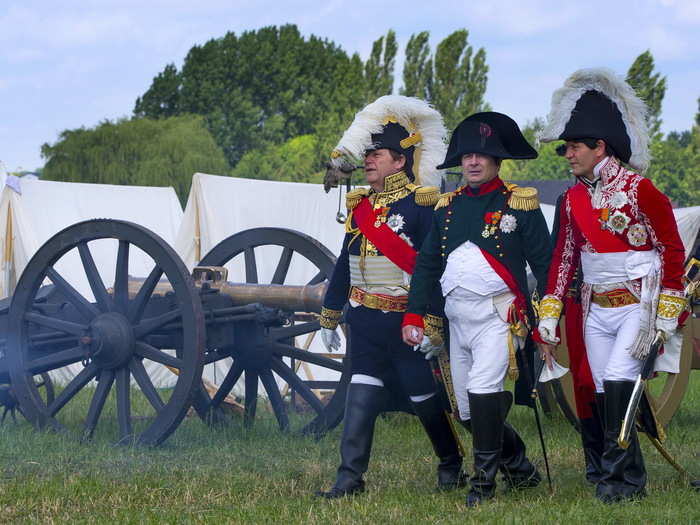
British battlefield tactics were key to the battle's outcome. They formed "infantry squares," lined with soldiers pointing their muskets outwards. The horses would not dare to charge at a wall of blades, and the French were forced to file between the squares. As a result, Napoleon's army was slowly picked off.
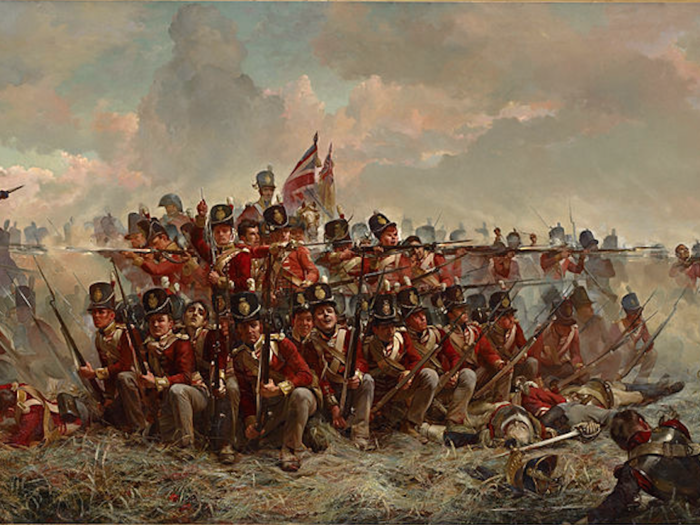
As the battle turned, Napoleon deployed his famous Old Guard, a regiment entirely composed of war veterans that was famous for never retreating. When the Old Guard was repelled, the French army lost heart.
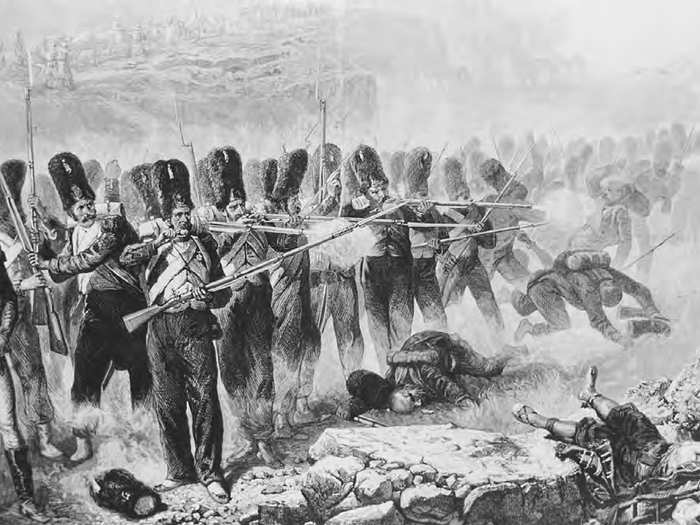
The battle was decided by nightfall. Napoleon, one of Europe's most prolific conquerors and a leader who had irrevocably changed the face of the continent, had been defeated for good. Over a decade of war in Europe were over.
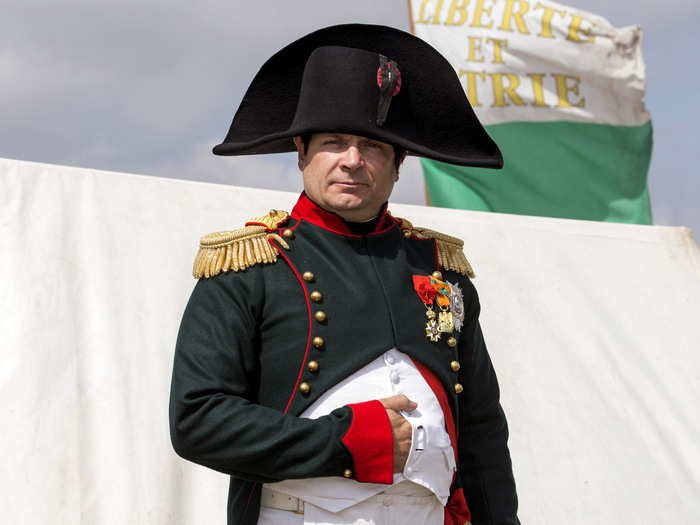
The allied victory made a hero out of Wellington, who went on to serve as Prime Minister. It allowed Prussia to reclaim the lands Napoleon had once annexed.
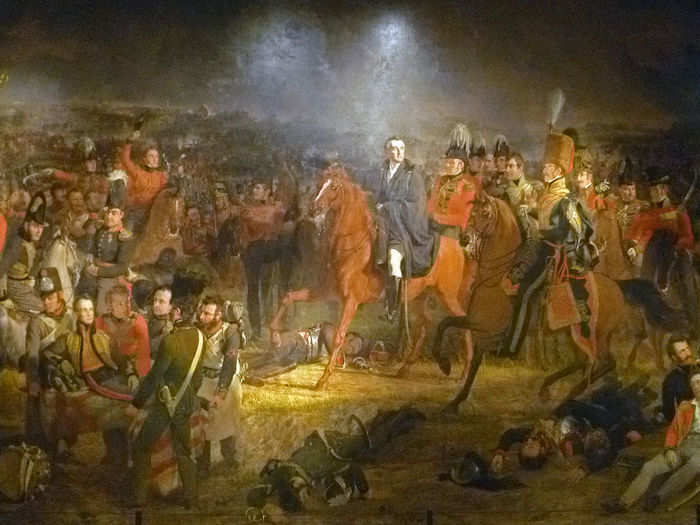
But the immediate result of the Battle of Waterloo was absolute carnage. The French suffered a staggering 41,000 casualties, while the Seventh Coalition had around 24,000 casualties.
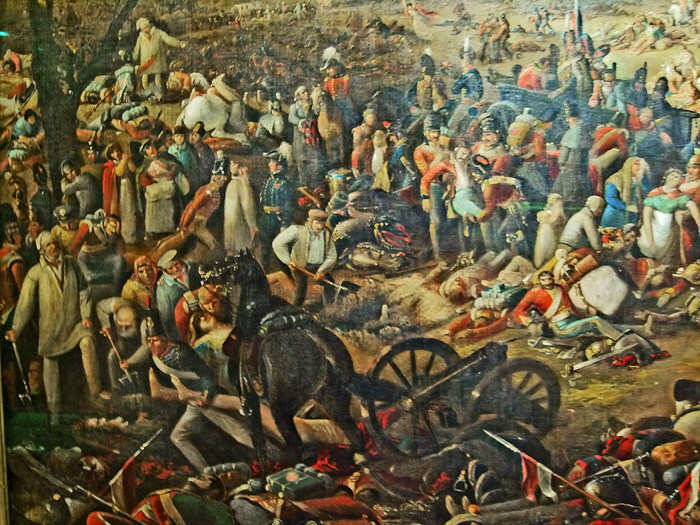
A cowed Napoleon returned to Paris. Realizing total defeat was looming, Napoleon abdicated as emperor on June 22nd. Considered an outlaw and wanted dead or alive by the Prussians, Napoleon thought about fleeing to the US — but eventually surrendered to the commander of the British frigate Ballerophon on July 15th.

The Battle of Waterloo led to the final surrender of Napoleon, the end of the Napoleonic Wars which had started in 1803, and the Emperor's exile to the island of Saint Helena, where he ultimately died in 1821.
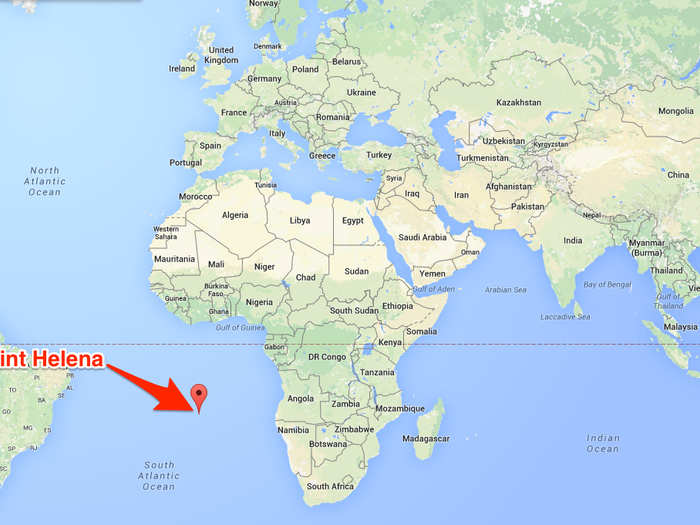
Saint Helena is still one of the most isolated places in the world. The allies didn't want to risk a repeat of the Hundred Days and sent Napoleon as far away as humanly possible.
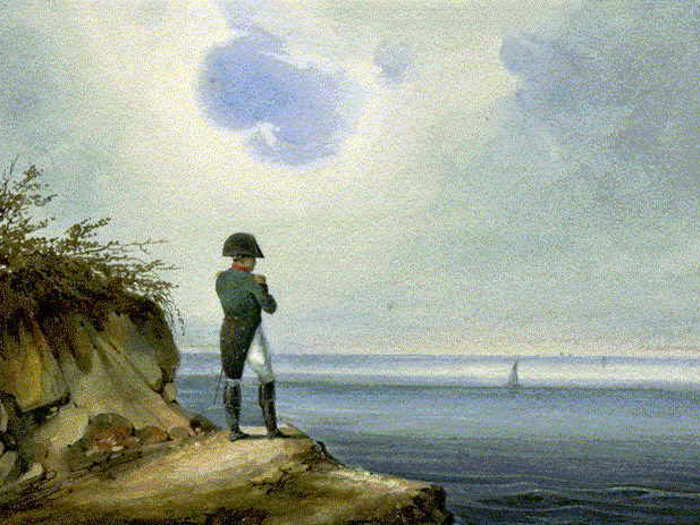
Here's what Jamestown, the island's largest settlement, looks like today:
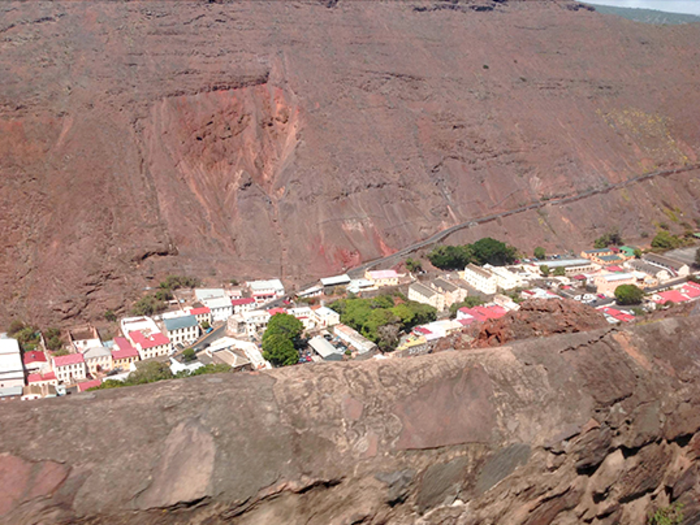
... and here's the house where Napoleon lived in exile for the last 5 years of his life. He was kept in an especially cold and windy part of the British-controlled island, under constant watch to ensure that he wouldn't try an escape.
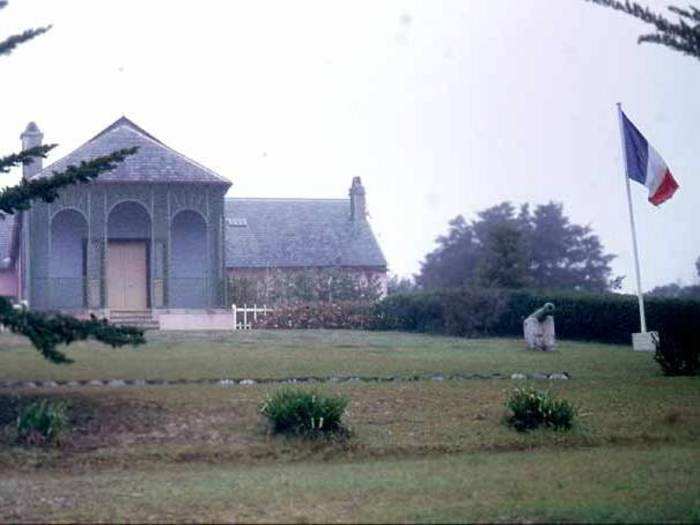
Napoleon's ushered in a resurgence of conservatism throughout Europe, chiefly through the Russian-led Holy Alliance of Austria, Prussia, and Russia, which focused on restraining republicanism on the continent.
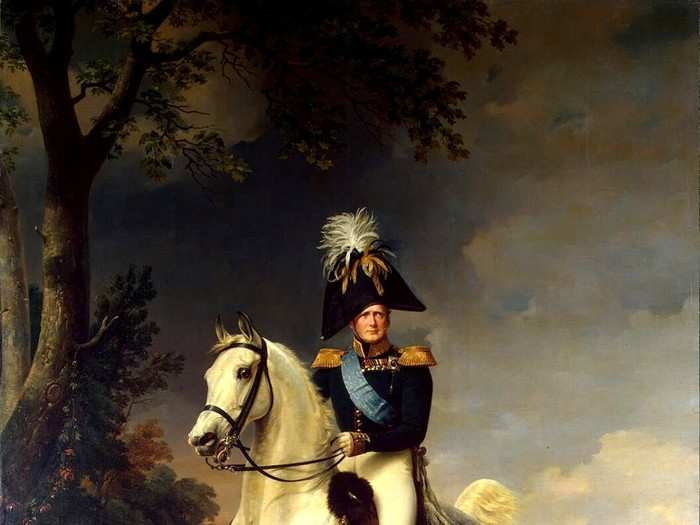
For European monarchs, Napoleon had embodied a dangerous wave of political change and an existential threat. At the Congress of Vienna, an agreement signed nine days before the Battle of Waterloo set the post-Napoleon borders of Europe and formed the basis of superficially stable monarchical and conservative order in the continent. But the Congress of Vienna was arguably a catastrophic long-term failure, since the regimes it preserved came apart disastrously in World War I, less than 100 years later.
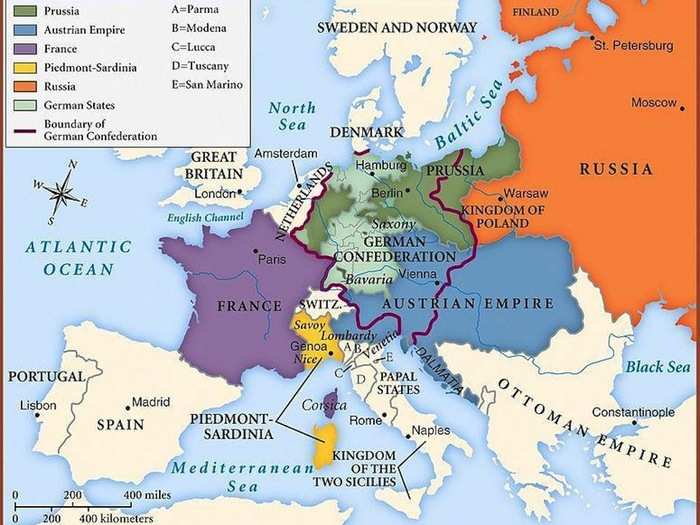
In the medium term, though, these alliances and agreements and Napoleon's defeat at Waterloo led to nearly four decades of relative peace throughout Europe — a quiet spell that ended with the republican revolutions that swept Europe in 1848, and the Crimean War in 1853.
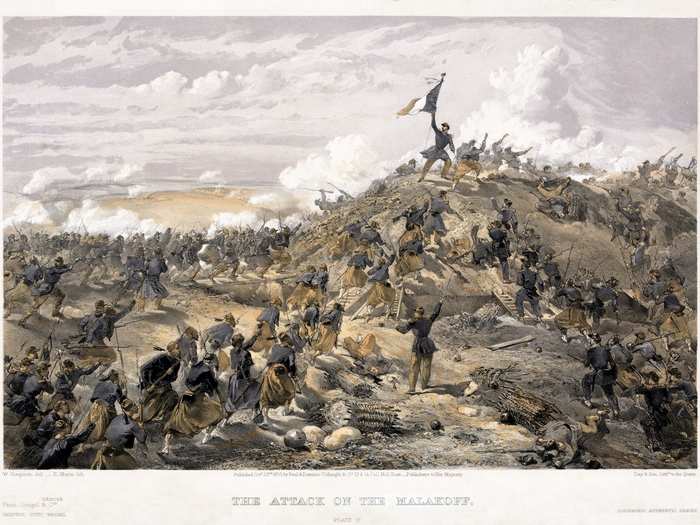
To commemorate the battle that vanquished Napoleon and changed Europe, King William I of the Netherlands had the Lion's Mound built at Waterloo in 1826. The hill, created from soil from the battlefield, captures the momentousness of what took place at Waterloo — but it also changed the physical geography of the historic battlefield.
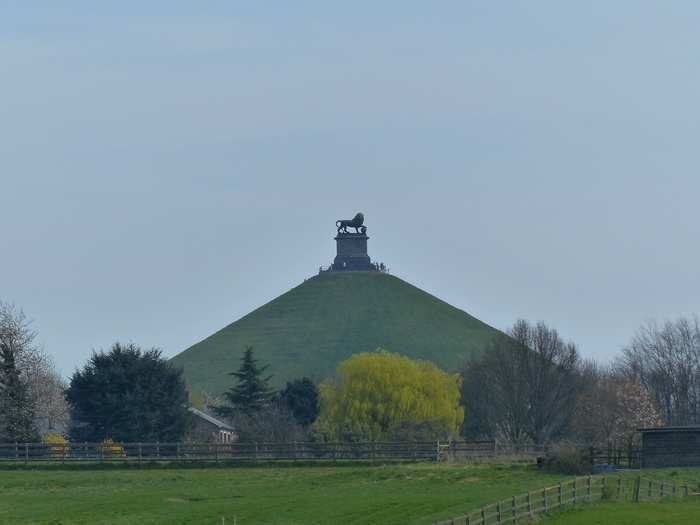
Today, "Waterloo" is a byword for epic confrontation, or, more specifically, for overwhelming defeat. Napoleon "met his Waterloo" 200 years ago — an event that set the stage for the next century of European history.

You've seen the story of the most epic battle in history ...
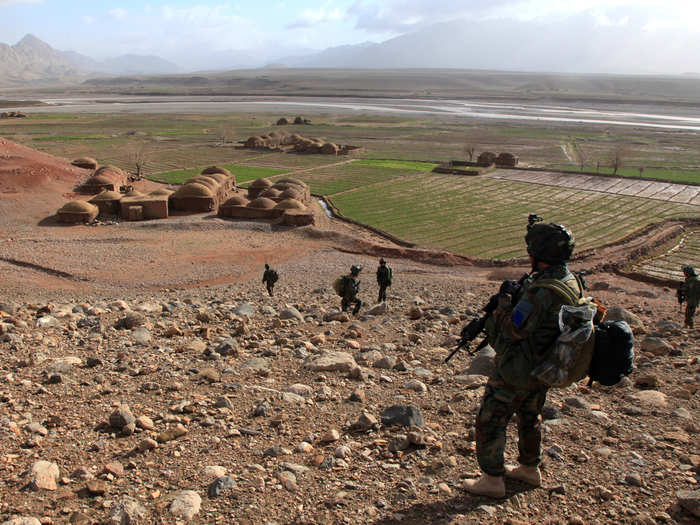
Popular Right Now
Popular Keywords
Advertisement